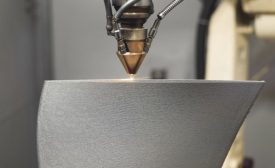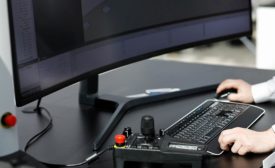Home » additive manufacturing
Articles Tagged with ''additive manufacturing''
TEST & INSPECTION
As Manufacturers Embrace Increasingly Complex Materials and Processes, Their Inspection Methods Evolve with Them.
Read More
Additive Drives the Adoption of CT for Nondestructive Internal Inspection
CT provides unparalleled insight into a 3D structure, including its density at every point throughout its volume.
November 30, 2020
Reverse Engineering Software 101
It is the process of converting a physical part into a digital form.
May 1, 2020
Quality Headline
New ASTM International Group Will Help Expand Applications of Additive Manufacturing Technologies
January 21, 2019
INDUSTRY HEADLINE
Volkswagen Selects Additive Industries’ MetalFAB1 for Industrial 3D Metal Printing
November 13, 2018
INDUSTRY HEADLINE
UL Chemical Safety Research and Georgia Institute of Technology Release Pioneering 3D Printing Research
Studies identify a potential health risk from emissions released from 3D printers.
November 12, 2018
INDUSTRY HEADLINE
Renishaw and Singapore Polytechnic Collaborate to Promote Metal 3D Printing
October 22, 2018
INDUSTRY HEADLINE
ASTM International Additive Manufacturing Center of Excellence Announces First Round of R&D Projects
September 18, 2018
INDUSTRY HEADLINE
Fast Radius Opens Headquarters and Additive Manufacturing Factory in Chicago‘s West Loop
August 28, 2018
INDUSTRY HEADLINE
ASTM International to Host November Symposium on Additive Manufactured Parts
August 23, 2018
Stay in the know with Quality’s comprehensive coverage of
the manufacturing and metrology industries.
eNewsletter | Website | eMagazine
JOIN TODAY!Copyright ©2024. All Rights Reserved BNP Media.
Design, CMS, Hosting & Web Development :: ePublishing





